Oral Surgery Procedures & Technology – Dallas, TX
State-of-the-Art Dental Care
Some dental conditions require specialized treatment options, a surgical approach, and specific expertise. Your family dentist may choose to work with an oral and maxillofacial surgeon when you have been diagnosed with a dental condition that might require oral surgery. Learn more about oral surgery procedures and technology in Dallas, TX on this page.
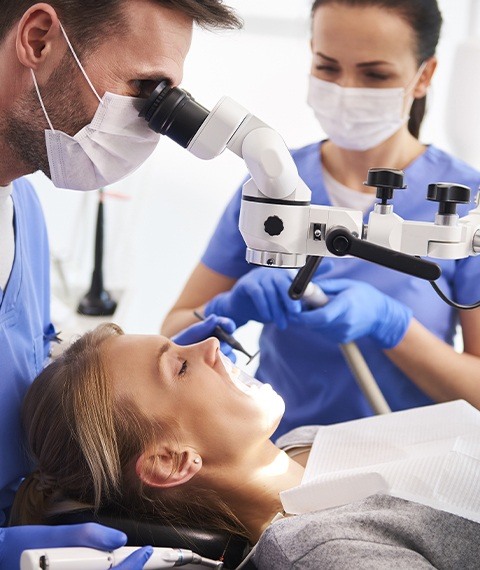
Why Choose Texas Wisdom Teeth and Dental Implants for Oral Surgery?
- Up-to-Date Technology and Techniques
- Extensively Trained, Experienced Surgeon
- Multiple Forms of Sedation Available
What Is an Oral Surgeon?

An oral and maxillofacial surgeon (oral surgeon) is the dental profession's surgical specialist. Oral surgeons are trained to treat a variety of medical and dental conditions associated with the jaws and facial structures. An oral surgeon has a uniquely thorough understanding of the function and aesthetics of the jaw and facial relationship. Texas Wisdom Teeth and Dental Implants's oral surgeons are committed to providing their patients with state-of-the-art dental surgery and personalized, attentive patient care.
Your Dallas Oral Surgeon's Training and Education
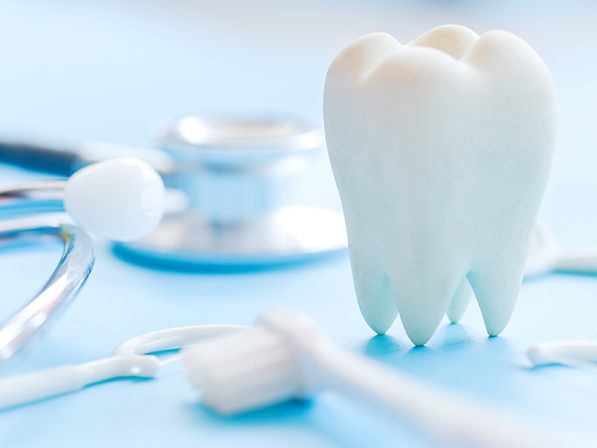
Training in the oral surgery specialty requires eight or more years of advanced education. Oral and maxillofacial surgeons complete four years of dental school after their undergraduate degree. Dental school is followed by four more years in a hospital-based surgical residency program. During the surgical residency, oral surgeons complete rotations in medical specialties, including internal medicine, oral surgery, emergency medicine, general surgery, plastic surgery, otolaryngology, and anesthesia.
One of the longest and most specialized rotations is in anesthesia. Since an oral surgeon is licensed to perform in-office general anesthesia, they are well trained in all aspects of this specialty. Our surgeons are equipped to evaluate patients, deliver all forms of local and general anesthesia, and monitor/manage patients before, during, and after anesthesia. This intensive, highly specialized training and experience allows our surgeons to provide safe and effective anesthesia for control of pain and anxiety for his patients. With over 30 years of experience in oral and maxillofacial surgery, Texas Wisdom Teeth and Dental Implants is able to draw on the knowledge and expertise which comes with having treated many thousands of patients.
Texas Wisdom Teeth and Dental Implants is proud to be your Dallas oral surgeon. You deserve personalized treatment with genuine concern and compassion. Call today to speak with one of our business assistants who can help you get started on restoring your oral health.
Tooth Extractions
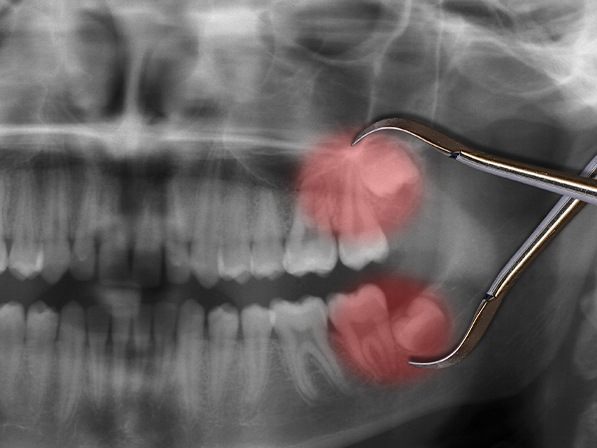
A broken or decayed tooth that cannot be repaired must instead be removed. One of our skilled oral surgeons will examine the tooth and consider different options before recommending a tooth extraction. IV sedation is normally used during this procedure, so there’s no need to worry about discomfort; in fact, you might not even remember what happened during your visit. We’ll do everything we can to make the extraction as simple for you as possible, and you can expect to recover quickly after your oral surgery in Dallas.
Learn More About Tooth Extractions
Biopsies

Your dentist might refer you to Texas Wisdom Teeth and Dental Implants if there’s a discolored, raised, or otherwise abnormal area in the soft tissues in your mouth. Such symptoms might be an early warning sign of oral cancer, and your chances of survival will be much higher if the condition is treated quickly. To that end, we can perform a biopsy of the affected area. This means taking a sample of the tissue so that it can be thoroughly examined and tested; in about 10 days, the laboratory results should be ready.
Learn More About Oral Pathology
Bone Grafting & Sinus Lifts

The bone in your jaw will start to recede after you’ve lost your teeth, resulting in a loss of height. This can make it difficult for patients that have relied on traditional dentures for a long time to get dental implants. Our oral surgeon in Dallas, Dr. Anver, can perform a procedure called bone grafting to restore the density of the jaw, increasing the chances of successful dental implant surgery. A similar treatment called a sinus lift can be used to move the sinus cavity away from the jaw so that it doesn’t get in the way of dental implant placement.
Learn More About Bone Grafting & Sinus Lifts
Impacted Teeth
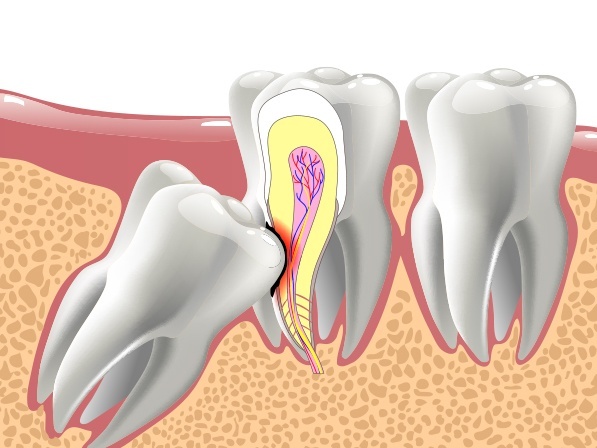
Some teeth, most commonly the wisdom teeth and the maxillary canines, become trapped under the gums and never appear in the mouth. This can result in damage to nearby teeth as well as the growth of a cyst or tumor. You might also notice considerable pain. The appropriate treatment depends on which teeth are impacted; wisdom teeth are normally removed, but since the maxillary canines play an important role in eating and bite alignment, they’ll instead be exposed and attached to an orthodontic bracket that will move it into its proper position.
Learn More About Impacted Teeth
Lip and Tongue Tie Treatment

Tongue tie and lip tie occurs when the tissue that connects the tongue or the lip to the rest of the mouth is too tight, short, or thick to allow full movement. These conditions can make it difficult for babies to breastfeed, affect an older child’s speech development, and put adults at a high risk of tooth decay. Our oral surgeons are able to recognize lip tie and tongue tie, and they can treat both issues simply by cutting away the excessive tissue.
Learn More About Lip & Tongue-Tie
Anesthesia
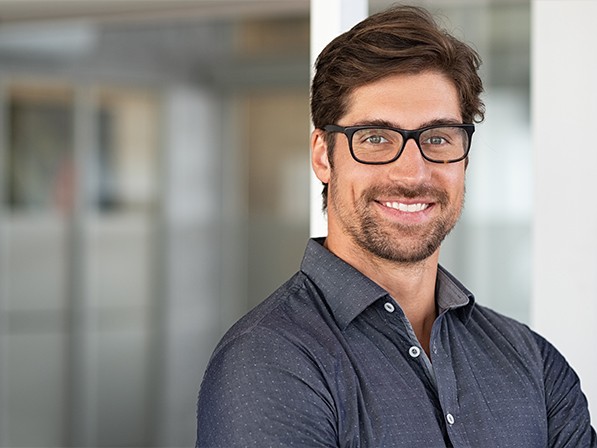
You don’t need to be a doctor to understand that many patients become nervous just thinking about oral surgery. We strive to give our patients a completely stress- and pain-free experience no matter why they’ve come to see us, which is why for many procedures, we offer IV sedation to keep people comfortable. This safe and reliable method involves administering a sedative directly into the bloodstream, quickly putting a patient into a deep state of relaxation so they basically don’t feel anything unpleasant while in the chair.
Facial Trauma

Often when someone has an accident that injures their teeth, they experience facial trauma as well. While other oral surgery offices may force patients to visit a different doctor to take care of anything that doesn’t involve their mouth, we’re able to handle many types of facial trauma repair right here in our oral surgery office for maximum convenience. We can help restore someone’s appearance and function while keeping them comfortable the entire time.

